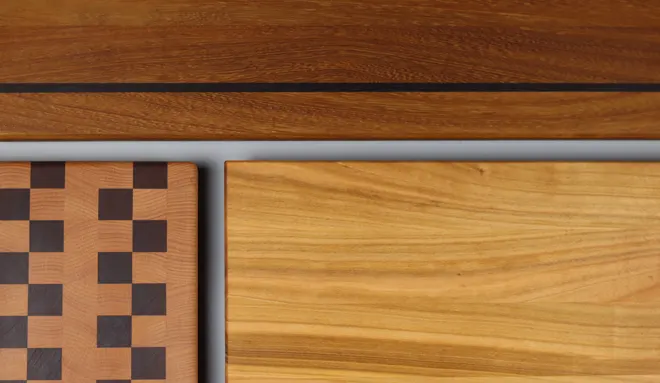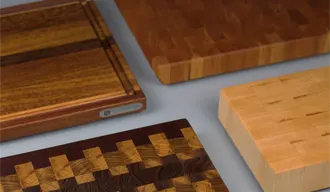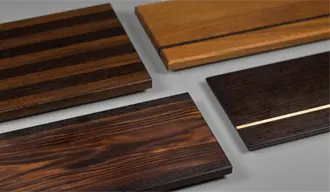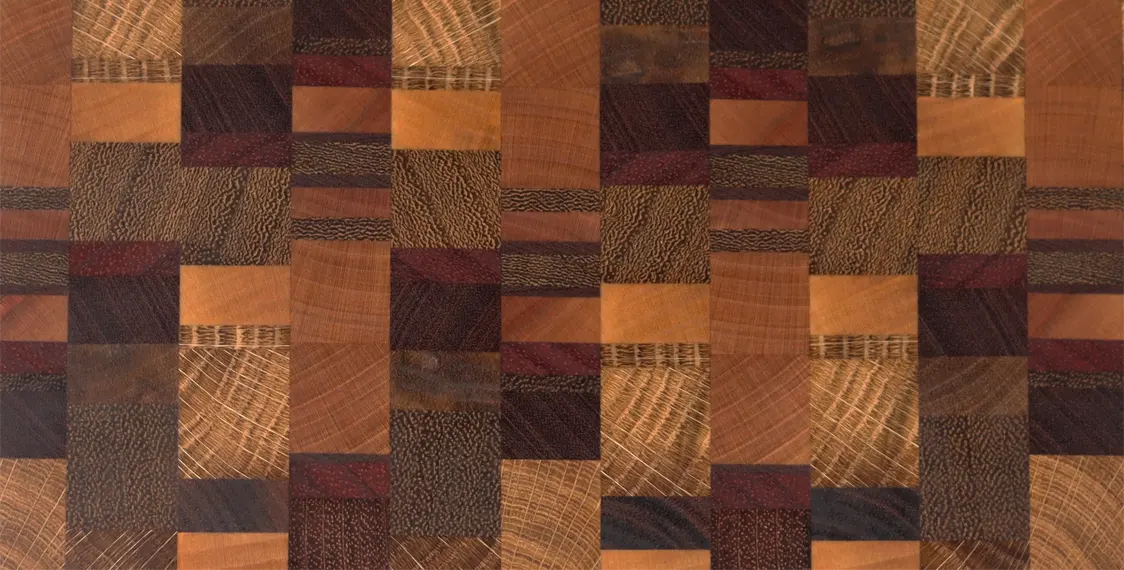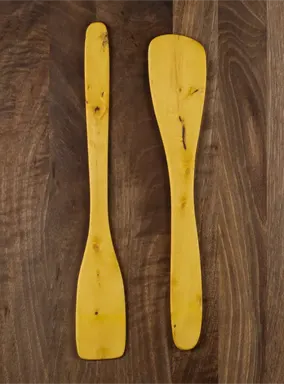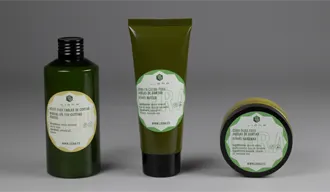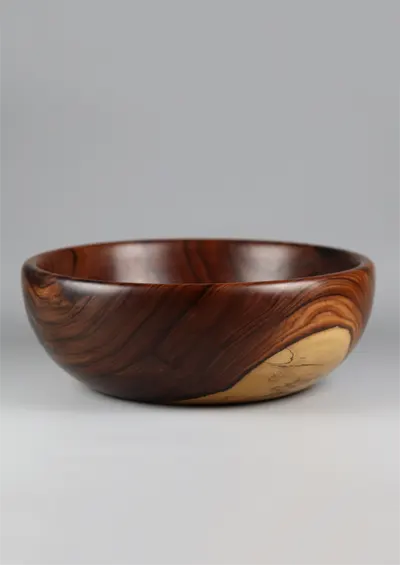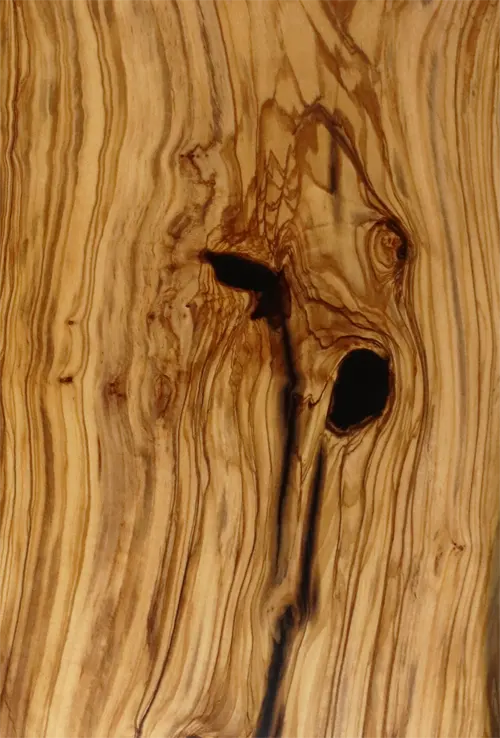Dark Woods: Types, Characteristics and Uses
Dark woods are synonymous with elegance, sophistication and style. With their deep shades ranging from deep brown to almost absolute black, they bring character and exclusivity to any environment.
But what makes them so special, what are their most popular varieties, and how to choose the ideal one for your project?
In this complete guide we tell you everything about dark woods, from their essential characteristics to their decorative uses. In addition, we show you a detailed comparison table with scientific names included.
What exactly are dark woods?
Dark woods are those that have deep natural tones, brown, reddish, chocolate or black.
They do not constitute a single species, but represent diverse species from both local and exotic/tropical regions. They are characterized by their elegance and are often used for exclusive furniture, musical instruments, and high-end decoration.
Main characteristics of dark woods
The most outstanding features are:
- Intense colors: Dark brown, chocolate, deep reddish or black.
- High strength: Most dark woods are hard, dense, and very durable.
- Remarkable texture: Depending on the wood, they usually have very defined and attractive grains.
- Natural resistance: Most dark woods have good or high resistance to moisture, wear and pests.
Types of Dark Woods: Comparison Table with Scientific Names
Below is a detailed comparison table of the most well-known and exclusive dark woods with their scientific names:
| Species | Scientific Name | Origin | Density (kg/m³) | Hardness | Common uses | Special Feature |
|---|---|---|---|---|---|---|
| Hickory | Juglans nigra | North America | 600-750 | High | Exclusive furniture, decoration | Elegant dark brown color |
| Mahogany | Swietenia macrophylla | Tropical America | 600-850 | High | Fine furniture, cabinetmaking | Intense reddish tones |
| Wenge | Millettia laurentii | Central Africa (exotic) | 850-950 | High | Flooring, premium furniture | Brown-black tones with marked veins |
| African Ebony | Diospyros crassiflora | Africa (exotic) | 950-1200 | Very high | Musical instruments, decoration | Exclusive deep black |
| Macassar Ebony | Diospyros celebica | Indonesia (exotic) | 1000-1200 | Very high | Cabinetmaking, exclusive furniture | Contrasting black and brown veins |
| Black rosewood | Dalbergia nigra | South America (exotic) | 800-900 | High | Instruments, handcrafted furniture | Dark brown streaks, very sparse |
| Teak | Tectona grandis | Tropical Asia | 650-800 | High | Outdoor/Indoor Furniture | Dark golden brown, natural resistance |
| Ziricote | Cordia dodecandra | Central America (exotic) | 900-950 | High | Marquetry, exclusive furniture | Dark brown with unique veins |
| Madagascar Ebony | Diospyros perrieri | Madagascar (exotic) | 950-1100 | Very high | Exclusive joinery, instruments | Very pure black shades |
Common uses of dark woods
These woods are particularly valued in the following uses:
- Exclusive furniture and fine cabinetry: woods such as black walnut are used to make high-end furniture at a high cost.
- Interior cladding: These are often used to veneer furniture.
- Musical instruments: pianos, violins, guitars, thanks to their acoustic properties.
- Decoration and marquetry: handcrafted work with unique details.
- Cutting and serving boards: The most widely available dark woods are often used for cutting and serving boards, such as hickory and wenge for their interesting shades.
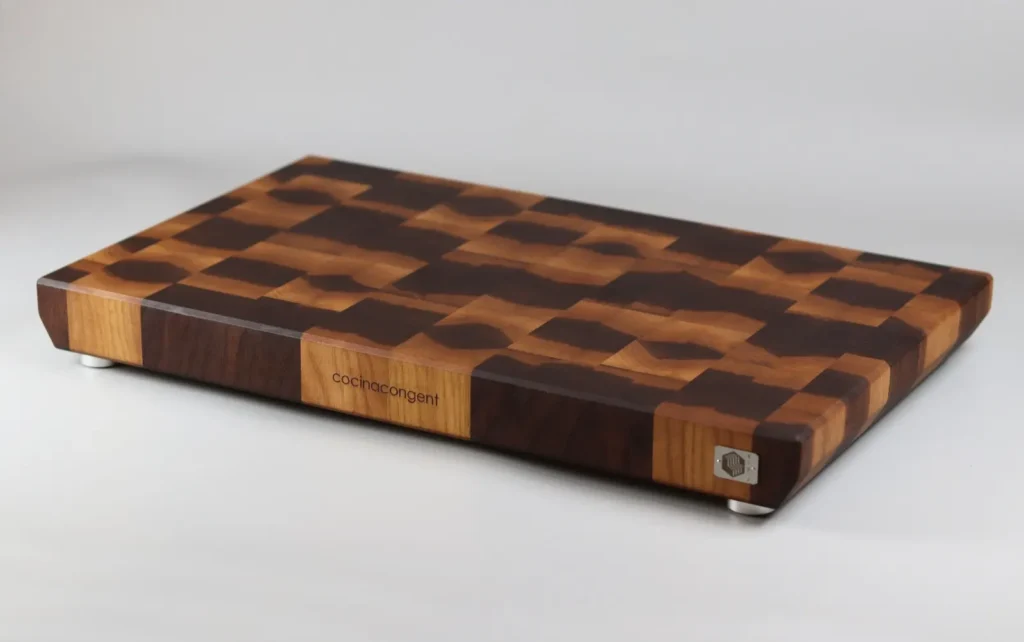
Decorative advantages of dark woods
Dark woods provide multiple advantages:
- Natural elegance: ideal for luxurious environments.
- Decorative contrasts: they combine perfectly with light walls and furniture.
- Durability: its wear resistance is usually high, it guarantees a long service life.
- Aesthetic versatility: they work well in modern, classic or contemporary styles.
Exotic and exclusive dark woods
Among the most exclusive species of dark woods we find:
- African Ebony (Diospyros crassiflora):
Native to Africa, it stands out for its absolute blackness, exceptional hardness and scarcity, being one of the most valued worldwide.

- Wenge (Millettia laurentii):
Coming from Central Africa, prized for its beautiful black and brown veins, ideal for exclusive furniture and elegant floors.
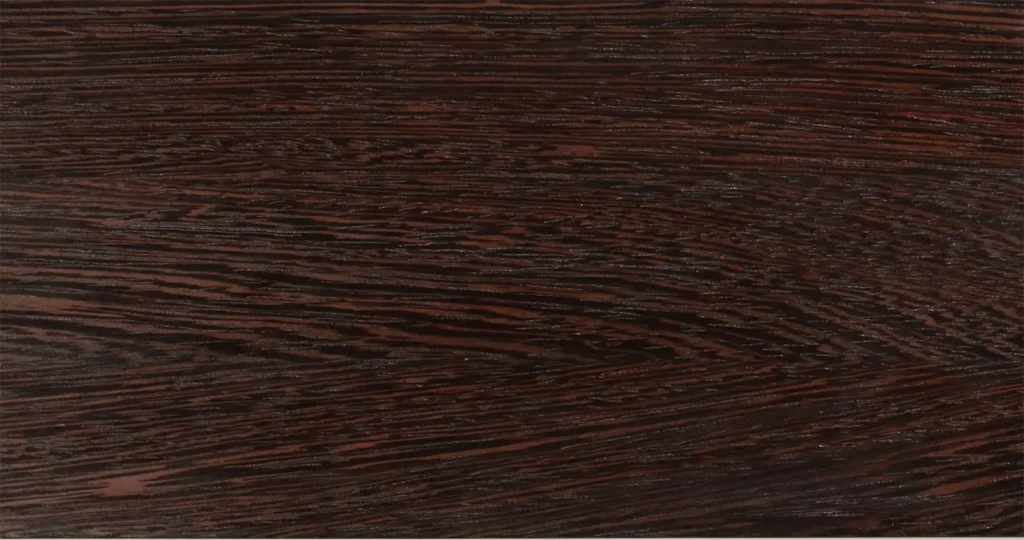
- Ziricote (Cordia dodecandra):
Hailing from Central America, it is a wood with unique dark tones and visually stunning veins, widely used in marquetry and high-value furniture.
Dark Wood Frequently Asked Questions (FAQs)
What exactly defines dark woods?
Dark woods are those that have dark brown, chocolate, black or deep reddish tones, standing out for their elegance and resistance. They come from a variety of local and exotic species, each with unique characteristics.
Are all dark woods sturdy?
In general, yes, most dark woods are dense and hard, such as ebony, wenge or walnut. However, the specific strength may vary slightly depending on the exact species chosen.
Which dark wood is the most exclusive in the world?
African ebony (Diospyros crassiflora) is one of the most exclusive dark woods in the world due to its rarity, density, absolute black color and great decorative value, being highly sought after in luxury cabinetmaking.
Do dark woods need special treatments?
Although they are naturally resistant, to maintain their beauty it is advisable to apply protective treatments such as specific oils or varnishes for dark wood, especially if they are used outdoors or in damp areas.
What decorative advantages do dark woods offer?
Their main advantage is that they provide colors, create warm and sophisticated environments, and allow very striking decorative contrasts when combined with light tones.
Are dark woods sustainable?
It is key to choose certified suppliers (FSC or PEFC), especially with exotic species, to ensure sustainable wood management.
Why are they used so much in musical instruments?
Dark woods have excellent acoustic properties thanks to their density, hardness and resonance, ideal characteristics for making professional musical instruments.
Are they more expensive than other woods?
Yes, they are usually more expensive due to their exclusivity, quality and difficulty in obtaining, especially exotic species such as ebony or wenge.
What maintenance do dark woods require?
They require regular cleansing with gentle products, avoiding harsh chemicals, and the periodic application of specific oils to maintain their hydration and natural glow.
Where can I buy exclusive dark woods?
You can find them in distributors specializing in exotic and fine woods, certified cabinetmakers and high-end wood stores.
Otras entradas del blog
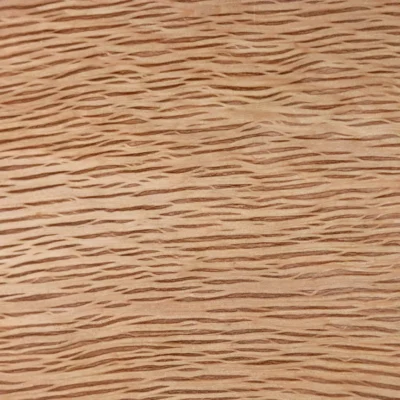
Holm Oak Wood: Characteristics and Uses
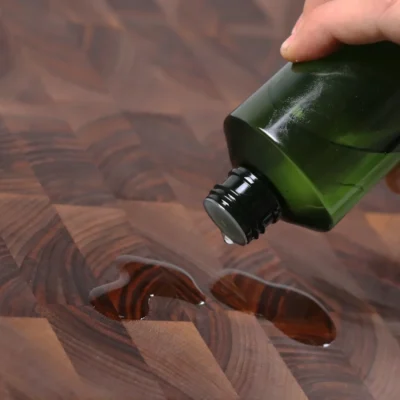
Cutting Board Oil: A Complete Guide to Options and Recommendations
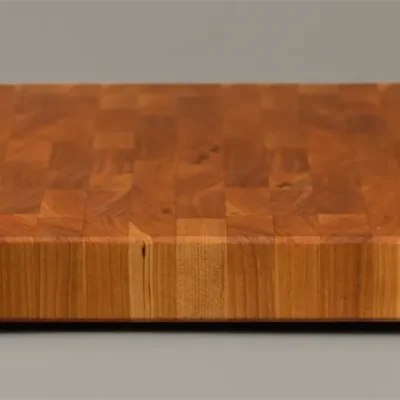
Noble Woods: What they are and common species
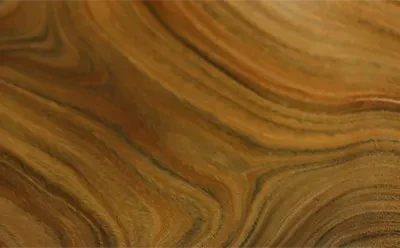
Verawood: Uses and characteristics
Nuestras tablas de cortar:
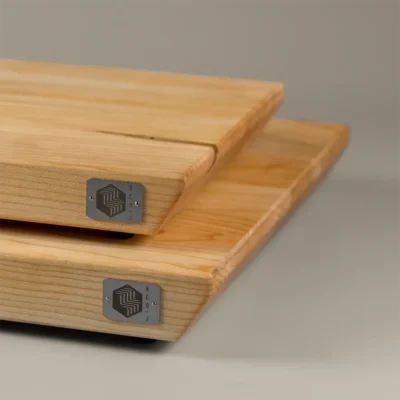
Linea
Maple grain maple board
Linea
Maplegrain maple board
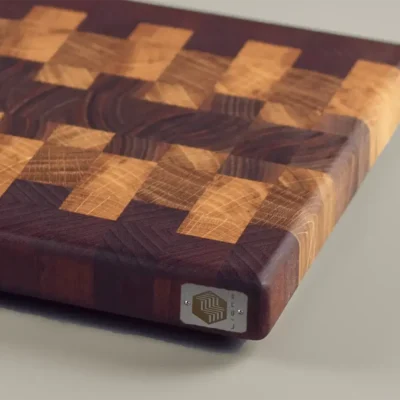
Calida
end grain cutting board
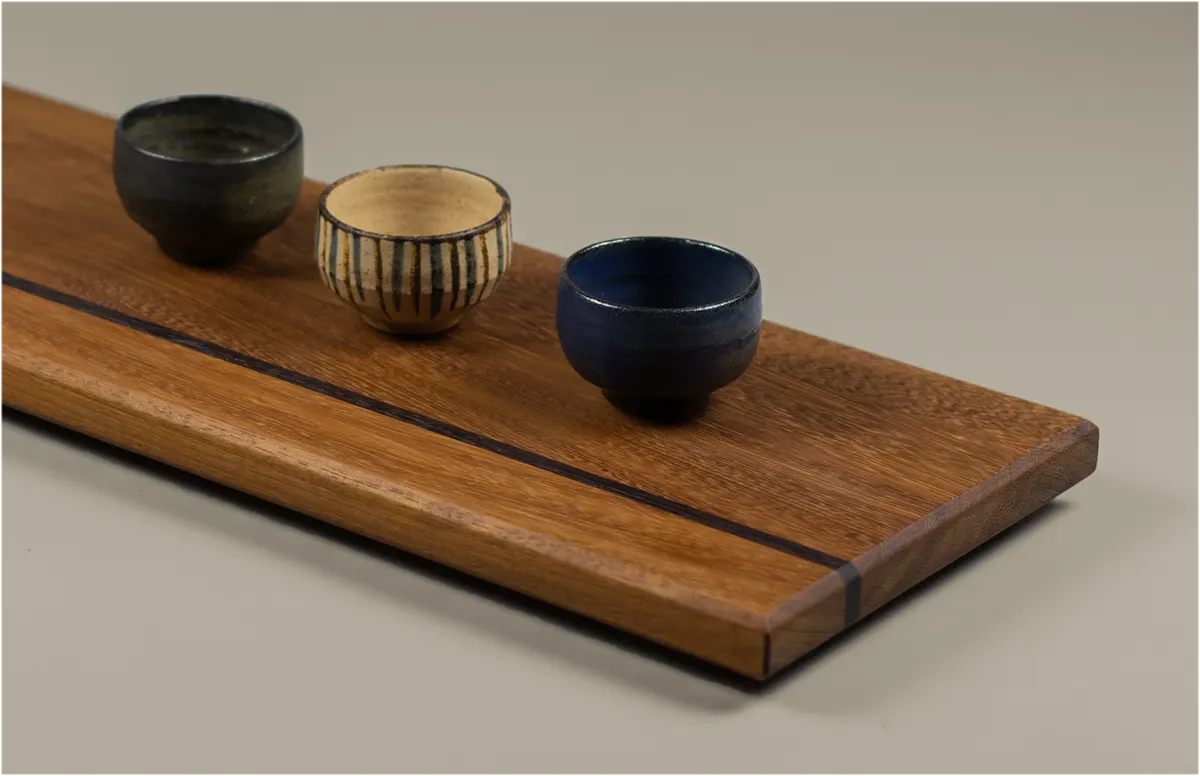
ARGILLA
long charcuterie board
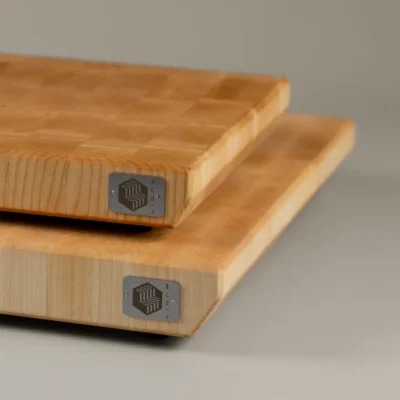
Pure
Maple maple butcher block
Pure
Maplemaple butcher block
